If you’ve experienced the effects of cannabis, you may be wondering about the impact that this drug has on your brain.
Alternatively, you may be concerned about someone else’s cannabis use and want to know whether cannabis kills brain cells.
Read on to learn more about cannabis, whether it lowers your IQ and how it affects your brain.
What is cannabis?
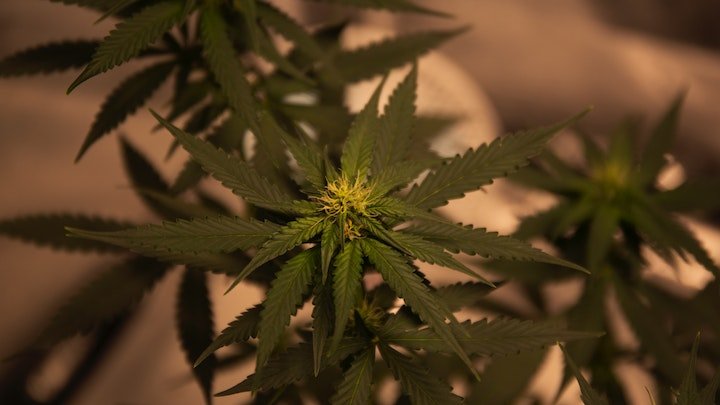
Also known as weed, grass, pot, green, hash and hemp, cannabis is a drug that is harvested from the cannabis plant.
There are three different types of cannabis plants grown across the world – cannabis indica, cannabis sativa and cannabis ruderalis.
Each plant will produce flowers which are harvested and dried, and this produces cannabis.
Cannabis is commonly smoked, vaped or consumed as an edible. It can make you feel extremely relaxed which is appealing to many people.
The two main components of cannabis are THC and CBD, with THC being responsible for the feeling of being ‘high’ while CBD makes you feel relaxed. [1]
Some people see cannabis as a safe drug as it is ‘natural’ and derived from plants. However this drug has many concerning side effects that make it illegal in many countries across the world, including the UK.
How does cannabis work?

You may be aware of the relaxing, euphoric and sleepy effects of cannabis as well as the downsides such as hallucinations and paranoia, but you may not know exactly how this drug works.
Smoking cannabis causes THC to enter the bloodstream, where it quickly travels to the brain. Here it binds to cannabinoid receptors and stimulates your brain receptors, causing them to produce excess amounts of certain chemicals. [2]
This process is what causes the sensations and side effects of cannabis.
When cannabis is consumed as an edible, it makes its way to the stomach and then into the bloodstream. This is a longer process than when cannabis is smoked, which is why the effects of cannabis edibles can take a while to kick in.
As you can imagine, the brain will often continue to seek out this sensation even when you are not using cannabis. This can contribute to an addiction.
Is cannabis addictive?
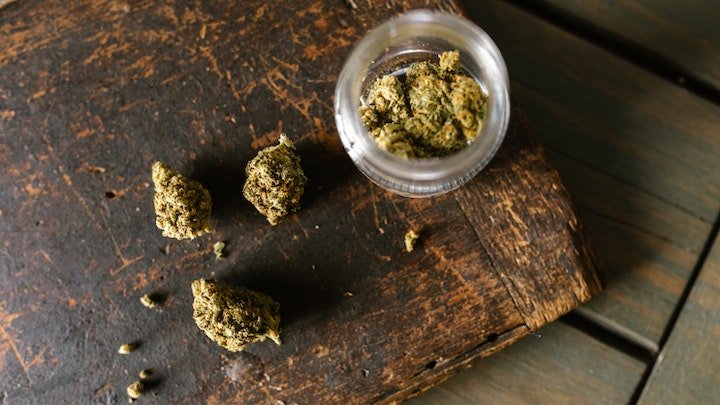
The question of whether cannabis is addictive has become a hot debate in recent years, with some people insisting that it is completely harmless while others point to studies showing the addictive properties of this drug.
In short, cannabis is potentially addictive. It is possible to become psychologically dependent on this substance, although there is not yet enough evidence to show whether cannabis is also physically addictive.
Some studies indicate that up to 30% of people who use cannabis may be addicted, and this is much more likely when they have been using this drug since before the age of 18.
This may also be due to the high strength of cannabis, with many high-potency strains being developed.
In fact, the average amount of THC in cannabis these days is 15%, increasing from just 4% since the 90s.
As cannabis has been legalised in many countries across the world, the number of people seeking treatment for cannabis addiction has increased.
What are the signs and symptoms of cannabis addiction?

Are you concerned that someone you know is suffering from an addiction to cannabis?
Or perhaps your worries are focused on yourself – has a once casual approach to cannabis use turned into something more serious and all-consuming?
Spotting the signs of a cannabis addiction can be difficult, as addiction is naturally a secretive and lonely disease.
No matter how much you may try to hide it, however, a cannabis addiction will eventually manifest in various signs and symptoms.
Common signs and symptoms of a cannabis addiction include:
- Frequently appearing unmotivated and lethargic
- Spending less time with family and friends
- Associating more with people who also use cannabis
- Appearing dishevelled and poorly groomed
- Little interest in performing well at work or school
- Neglecting responsibilities in favour of using cannabis
- Needing to use more cannabis to experience the same effects
- Experiencing withdrawal symptoms when they are not using cannabis
- Being unable to stop using cannabis even if they want to
You should never attempt to self-diagnose with a cannabis addiction – instead, speak to a doctor about your concerns.
They will be able to perform a range of tests to understand the extent of the problem and provide you with a professional diagnosis, before directing you to people and places that can help.
Does cannabis kill brain cells?
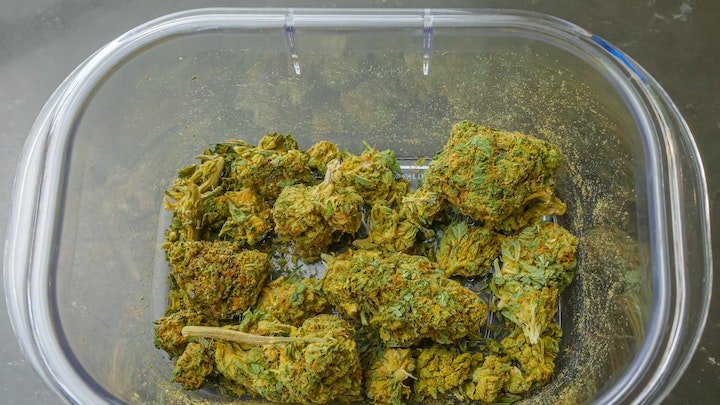
While many of us are aware of the detrimental impact that alcohol and other drugs can have on the brain, cannabis appears to largely fly under the radar.
The truth is, using cannabis can affect your brain in many negative ways.
As cannabis affects the brain cells that carry messages to other parts of your body, this drug has the potential to kill or damage your brain cells.
When cannabis is ingested, the THC binds to cannabinoid receptors in the brain which can affect your mood, cognitive functioning and memory.
You may have trouble recalling specific events or conversations, have trouble carrying out regular tasks or struggle to drive a car safely due to impaired judgement.
What are the effects of cannabis on the brain?
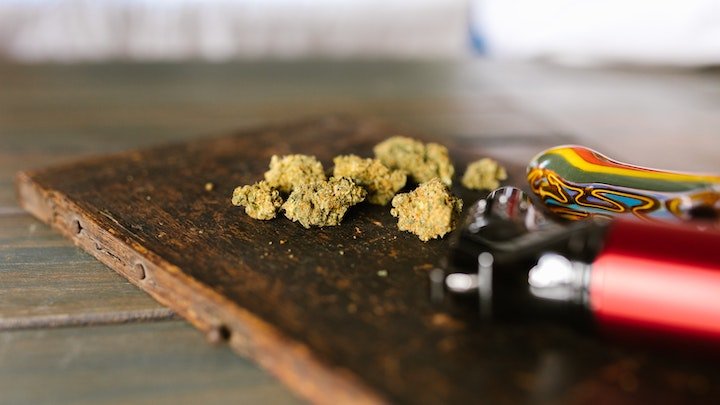
Cannabis can make you feel relaxed, but it can also make you feel extremely anxious and paranoid.
There is no definite way to know how you will react to cannabis, even if you have used it many times before.
This drug can have a number of effects on the brain, with these effects often worsening the more frequently you use cannabis.
Some of the effects of cannabis on the brain include:
- Memory loss
- Feeling confused
- Increased anxiety
- Impaired judgement
- Slow reaction times
- Paranoia
- Hallucinations
- Trouble judging distances
The only way you can be sure that you will not experience any negative effects to your brain is to avoid using cannabis entirely.
What are the effects of synthetic cannabis on the brain?

While cannabis is legal in many countries across the world, synthetic cannabis has been proven to be extremely unsafe and is generally illegal in most places.
Synthetic cannabis is a man-made version of the drug. It is much stronger than regular cannabis and is highly addictive.
It works in a similar way to cannabis, although its effects are much more dangerous.
While it binds to cannabinoid receptors in the brain just like regular cannabis, studies have found that the effect can be up to 100 times stronger.
If you use synthetic cannabis, you may experience the following side effects:
- Seizures
- Psychosis
- Paranoia
- Hallucinations
- Stroke
- Heart failure
- Violence
Some people have been left with brain damage after using synthetic cannabis, proving that this is one substance that undoubtedly kills brain cells.
Do cannabis edibles kill brain cells?

There are few studies to show the effects of cannabis edibles on brain health, but scientists generally believe that consuming cannabis in this way can be just as detrimental to your brain as smoking it.
After all, THC works in the same way no matter how you ingest it.
It binds to receptors in the brain and dulls your cognitive function in the short term, which can potentially continue long-term if you use cannabis regularly.
If you are concerned about the effects of cannabis on your brain health then it is not advised to smoke, vape or consume cannabis in any form.
Can using cannabis lower your IQ?

While it’s not clear whether using cannabis as an adult can lower your IQ, it’s clear that using it from an early age can have an impact on your IQ as you get older.
Some studies indicate that adults who are heavily dependent on cannabis may experience a drop in their IQ of up to 5 points.
This IQ drop mainly affects verbal and vocabulary ability, with mathematical and visuospatial elements appearing to be unaffected by cannabis use.
The data is more clear when looking at the effect that teenage cannabis use can have on IQ.
Studies have shown a link between a reduction in IQ and using cannabis as a teenager, and this is explored in more detail further in this article.
How does smoking cannabis affect the brain compared to vaping cannabis?

It is commonly believed that vaping cannabis is healthier than smoking it, as this method avoids the smoke that is often associated with health problems.
But some studies have found that vaping cannabis may actually be more harmful to your brain than smoking it.
One study asked half of its participants to smoke cannabis and the other half to vape cannabis before completing a series of tasks designed to test for cognitive impairment.
Those that vaped cannabis did significantly worse on these tasks, indicating that this method of ingestion is more damaging to the brain.
This may be due to the higher amounts of THC in the blood when cannabis is vaped, with a study finding 7.5 nanograms per millilitre in vapers compared to 3.8 nanograms per millilitre in smokers within the first 10 minutes of ingestion. [3]
So while smoking cannabis may be killing your brain cells, it looks like vaping cannabis could be even worse for your brain.
Can cannabis use cause memory loss?

The way that cannabis behaves in the brain undoubtedly causes short-term memory loss.
THC, one of the main active chemicals in cannabis, enters the brain and blocks a number of brain receptors. These receptors are located in areas of the brain that are responsible for memory including the hippocampus, cerebral cortex and amygdala.
This can make you more forgetful, have difficulty concentrating on basic tasks or conversation and even limit your ability to perform functions that you have done many times before such as driving a car.
But what about long-term memory loss? Could cannabis use be responsible for that?
Studies are still divided on this question, with some indicating that the use of cannabis can alter the structure of the brain while others seem to show no long-term effects on the brain.
It seems that people who use cannabis on a regular basis from a young age are more susceptible to long-term memory loss, but further research is needed to confirm or deny this.
Are teenagers’ brains more affected by cannabis?

As a teenager’s brain is still growing and forming neural pathways, cannabis use can have a physical effect on their brain and result in long-term consequences.
Cannabis use in teens can potentially cause an abnormal brain shape to form as well as a lower structural volume and damage to neurotransmitters. [4]
It is thought that cannabis is worse for the teenage brain than alcohol, another common drug that is experimented with during these formative years.
Numerous studies clearly show that teenagers’ developing brains are more affected by cannabisand that it can lead to reduced cognitive functioning.
Worryingly, one study shows that 89% of teenagers and young people who attend substance use treatment in the UK have used cannabis.
So, is cannabis use really killing brain cells in teens?
Another study found a drop in 5.8 IQ points in teenagers that regularly use cannabis, so it’s safe to say that this drug undoubtedly has a detrimental effect on the teenage brain.
What are the other downsides to using cannabis?
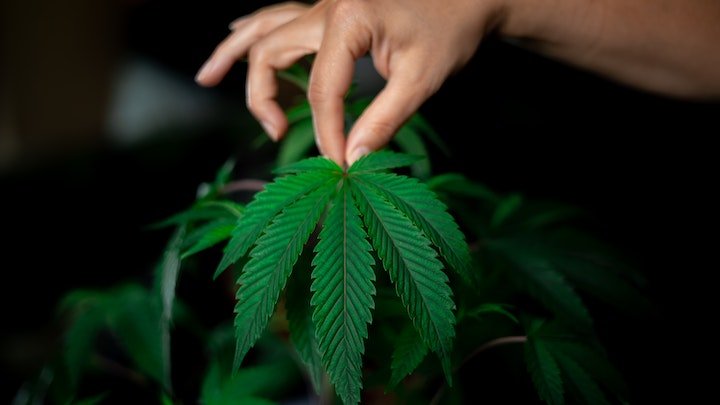
It’s clear that cannabis can have a detrimental effect on the brain, but this commonly-used drug also comes with a host of other downsides that you may not be aware of.
These include both physical and mental side effects that have the potential to affect your life for years to come.
Physical downsides to using cannabis include:
- Increased risk of lung infections
- Breathing problems
- Frequent coughing
- Increased risk of heart problems
- Negative effects on unborn babies, if pregnant
- Increased risk of developing cannabinoid hyperemesis syndrome (CHS) which causes frequent vomiting
Mental downsides to using cannabis include:
- Increased risk of developing an addiction to cannabis
- Hallucinations
- Feeling extremely paranoid
- Increased risk of developing depression
- Increased risk of developing anxiety
- Worsening symptoms of schizophrenia
While cannabis use is becoming more socially acceptable across the world due to new laws legalising this drug, it’s important to be aware of the physical and mental downsides that naturally occur alongside cannabis use.
How can I get help for a cannabis addiction?

Recognising that you have a problem with cannabis is an extremely brave step to take.
Now that you have acknowledged the issue, the next step is to get yourself the help and support that you need in order to recover.
We recommend speaking to your doctor about your concerns, as they will be able to professionally diagnose you and refer you to a local drug and alcohol support team, rehab clinic or other resources that can offer help.
A friend or family member can attend the appointment with you if you wish, to offer support and comfort.
You can also call the team at OK Rehab for friendly, free and confidential advice without judgement.
We have connections to some of the top rehab clinics in the UK specialising in cannabis addictionand can refer you to a clinic or treatment programme depending on your needs.
OK Rehab can be reached on 0800 326 5559 or call 0330 333 8188 if you are overseas.
What happens at cannabis rehab?
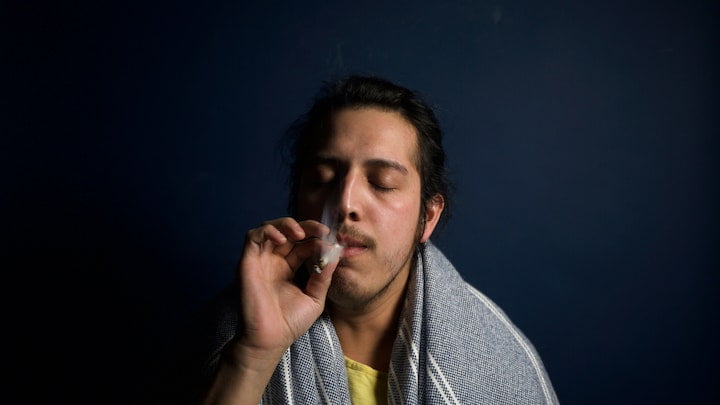
As cannabis is not believed to be physically addictive, most rehab clinics will not ask you to undergo a detox.
You can simply stop using cannabis cold turkey under the supervision of medical professionals, with cravings and other withdrawal symptoms peaking for up to 10 days.
Some people may continue to experience psychological withdrawal symptoms for a few months, and this is known as post-acute withdrawal syndrome (PAWS).
The main form of treatment at cannabis rehab is addiction counselling, where you will learn more positive ways to deal with difficult emotions instead of using cannabis.
You will also explore the reasons behind your cannabis use and how to change these behaviours.
Most treatment programmes at cannabis rehab require you to complete at least three weeks of counselling.
Towards the end of your stay at rehab you will be encouraged to create a relapse prevention plan with the help of your counsellor.
This will give you the tools, techniques and reminders to remain sober even without the safety net of rehab.
How can I stay sober after cannabis rehab?
Consulting your relapse prevention plan on a regular basis after cannabis rehab can help you to stay sober and increase your chances of achieving long-term recovery.
This may involve arranging ongoing counselling sessions at least once a week, getting involved in any rehab alumni programmes or activities, attending 12 Step programmes and other local support groups or finding a sponsor.
Your relapse prevention plan may also contain helpful techniques such as HALT, which stands for Hungry, Angry, Lonely and Tired.
Checking in with yourself regularly and thinking ‘HALT’ can help to keep you from becoming vulnerable and susceptible to relapse.
Finally, continuing to expand and reflect on the healthy behaviours and coping strategies that you learned in addiction counselling can help you to stay sober after cannabis rehab.
References
[1] https://nida.nih.gov/publications/drugfacts/cannabis-marijuana
[3] https://www.sciencedaily.com/releases/2018/12/181204131115.htm





